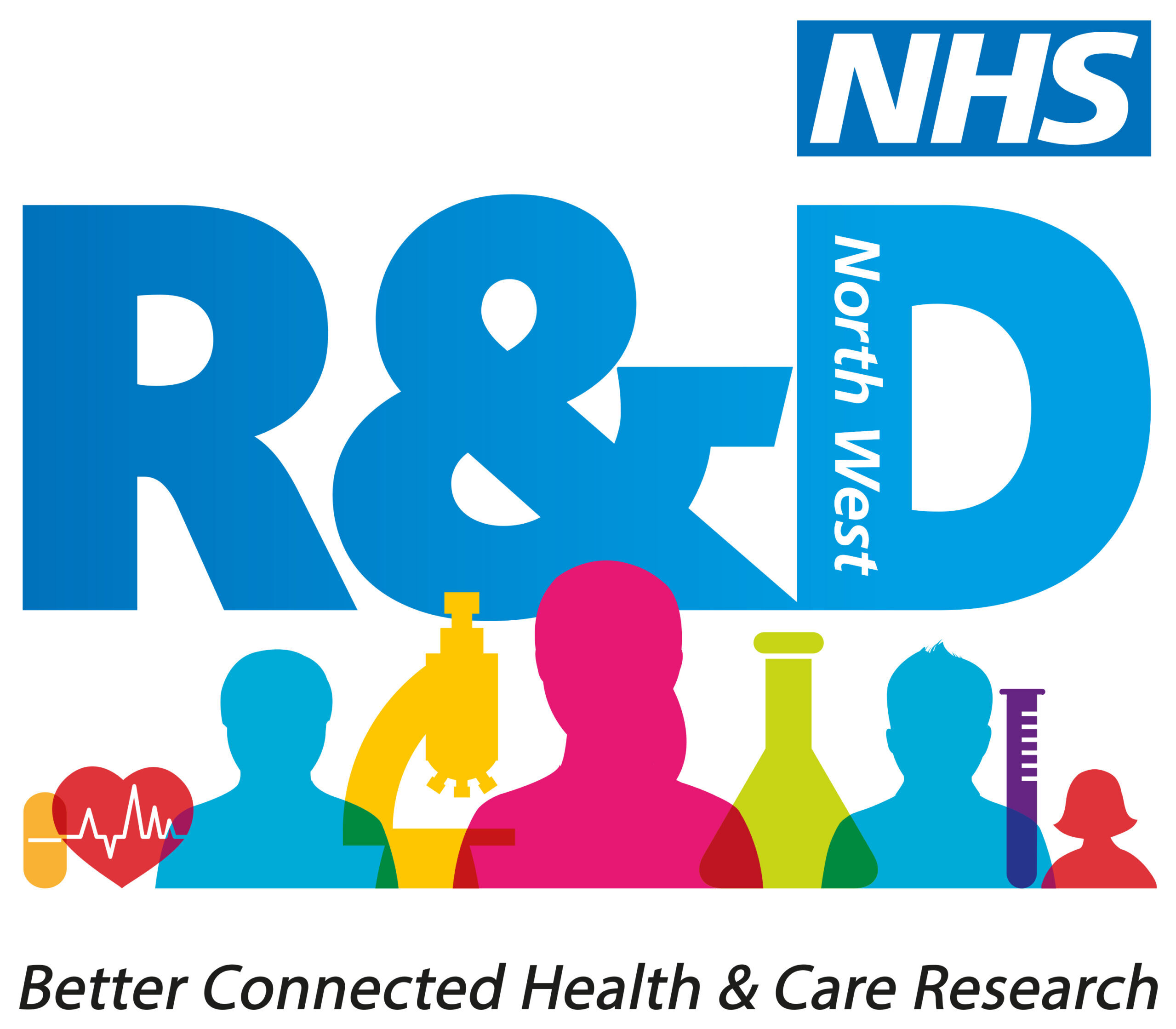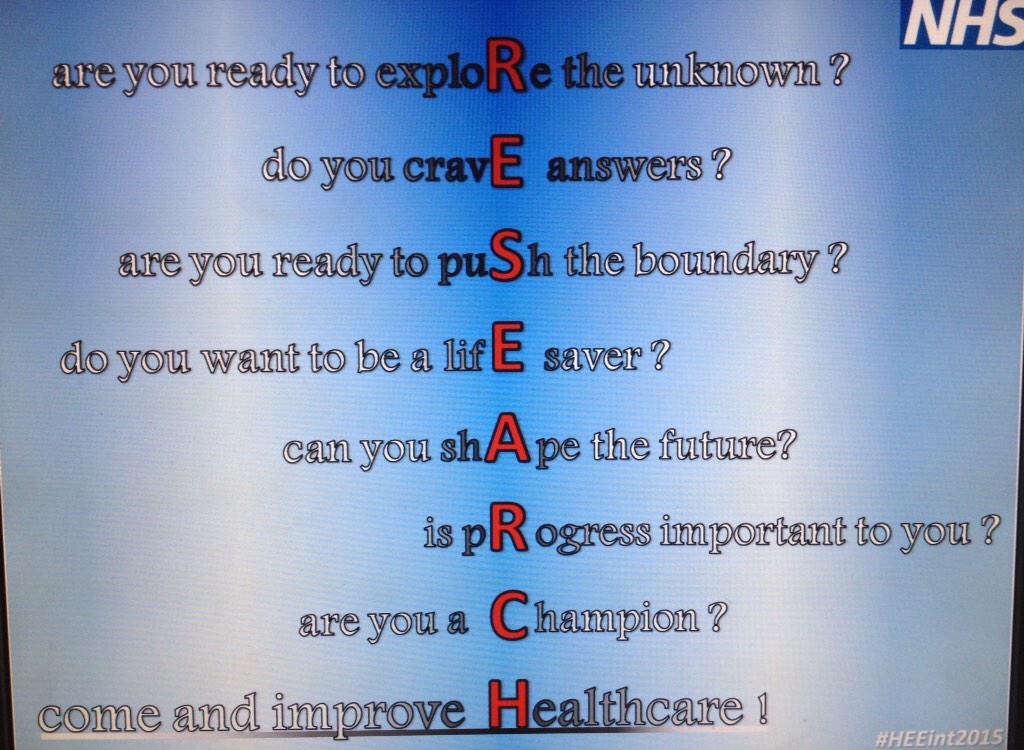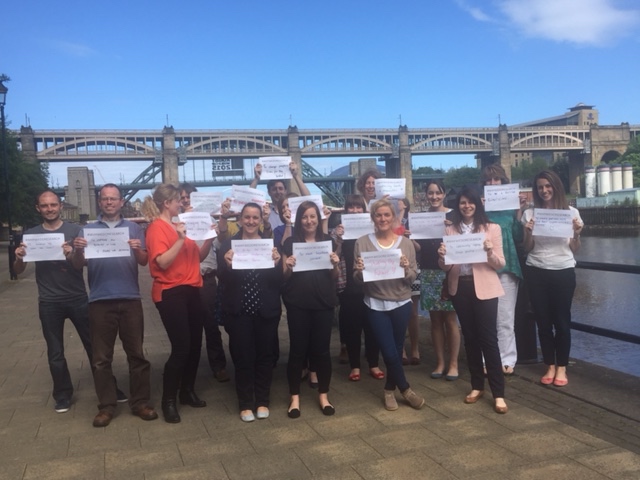HEE Internship Cohort 2014/2015
When and where?
The programme was carried over 6 months from January to July 2015 when certificates were awarded.
Aim, content & highlights:
In 2014, Health Education England launched and funded the integrated clinical academic internships programme. Supporting the first step onto a clinical academic career pathway, the 30 day internship was open to registered Health Professionals across the Northern region covering the North West, North East and Yorkshire & Humber. Interviews were conducted in December 2014 and 15 internships were awarded.
Kate Whitehead, a nurse from the Universities Hospital of South Manchester NHS Foundation Trust performed a rap at the end of the final residential!
Testimonials
Louise Combes – Art Therapist
I am so glad I went for the HEE Research internship. Here’s why:
- It allows time to take full advantage of the NHS trainings already available that will improve my research.
- It gives insight into formal study like PHD and MRes and what is involved on a personal level
- It explains existing research systems and what’ s relevant to my subject
- It has made methe focus . It’s been a challenge to consider what Irather than my workplace is interested in because it’s more normal to pursue work place rather than personal goals. To have Research experts invest time considering things through the lense of my personal career development is a pleasure, a privilege and a revelation. It has changed my research plans for the better.
- This process enables connections with people who are interested in the same clinical population, can really shape thinking and avoid lots of wasted time
- The coaching element during the 5 study days tackle some hidden obstacles too and this is pursued in smaller groups on the phone throughout the duration. Sharing with speech therapists, OTs, Nurses and Physios has been really useful. As an Arts therapist I think I have a better idea of how to work with other AHPS now.
I am glad I went for it! I would encourage anyone with a developing research idea to consider it, but give yourself some time as you will need to find an academic supervisor to support it.
James Faraday – Speech and Language Therapist
I’m a Speech and Language Therapist, working for The Newcastle upon Tyne Hospitals NHS Foundation Trust. I work with adults who have problems with speech and swallowing. For a long time I’ve been aware of the need to ensure our assessment and intervention is evidence-based – but have felt uncertain of how to actually go about this. When I heard about the Clinical Academic Internship it sounded like an ideal way to move forward with this – to learn some concrete skills, and get a flavour of clinical academic work. It has been a great experience! Some of the highlights have been:
- I’ve completed a Masters module on Research Methods at Newcastle University, which has enabled me to brush up on my (initially rather rusty!) knowledge of statistics and methodology, and given me confidence in thinking about how to apply this to my own research ideas
- I’ve met some really helpful people, and now genuinely feel part of the clinical academic community. For example, I’ve become a member of the DevMod group in Newcastle (DevMod stands for developing and modelling complex interventions, and the group is for Allied Health Professionals who look at using MRC guidelines for evaluating complex interventions)
- I’ve had the opportunity to develop my own research project. I am interested in the effectiveness of SLT training for nurses/care staff working with people with dementia – in particular on the topic of eating and drinking difficulties. As part of the internship I’ve written a protocol for a systematic review, and in doing this I’ve learned so many new things, e.g. about complex interventions, and review methodology
It’s also given me some valuable thinking-time, to consider how to take this further. As the internship has come to an end, I’ve felt inspired and motivated to continue down this clinical academic path, and I’ve successfully applied for Research Capability Funding from my NHS trust. I will use this to complete the systematic review, and put together a PhD proposal. I would never have had the confidence and skills to do this without the internship!
Jennie Harris – Paediatric Physiotherapist
My name is Jennie Harris and I work in a small paediatric physiotherapy department in Doncaster & Bassetlaw Hospitals NHS Foundation Trust. When I applied for the HEE/NIHR Integrated Clinical Academic Internship programme in 2014 I had an enthusiasm for evidence-based practice and I was keen to explore new and innovative ways to deliver this. However, I often felt somewhat confused and overwhelmed by the mountains of information out there and wasn’t really sure how to move forward.:
The internship programme has presented with a wealth of opportunities and experiences that have given me the confidence to take the next step towards a career in clinical academia. I begin my HEE/NIHR funded Masters in Clinical Research studentship at Leeds University this September with the hope to progress to PhD.
Here are just some of the experiences that I had during my internship:
- The opportunity to develop and refine my own research question with guidance from experienced clinical researchers
- Learn how to perform systematic review and meta-analysis
- Learn how to critically appraise literature
- The chance to explore implementation science and translation of knowledge into practice
- Support in developing a research proposal
- Experience of championing research within the NHS
What have I learnt through the process?
- How to define the core values of a research idea are and how to stay true to these
- The importance of networking
- That it’s ok not to know (the more you discover the less you feel you know!)
- The huge diversity of researchers and research settings
- Perseverance and stamina (and how to overcome barriers)
- Research is fun!




